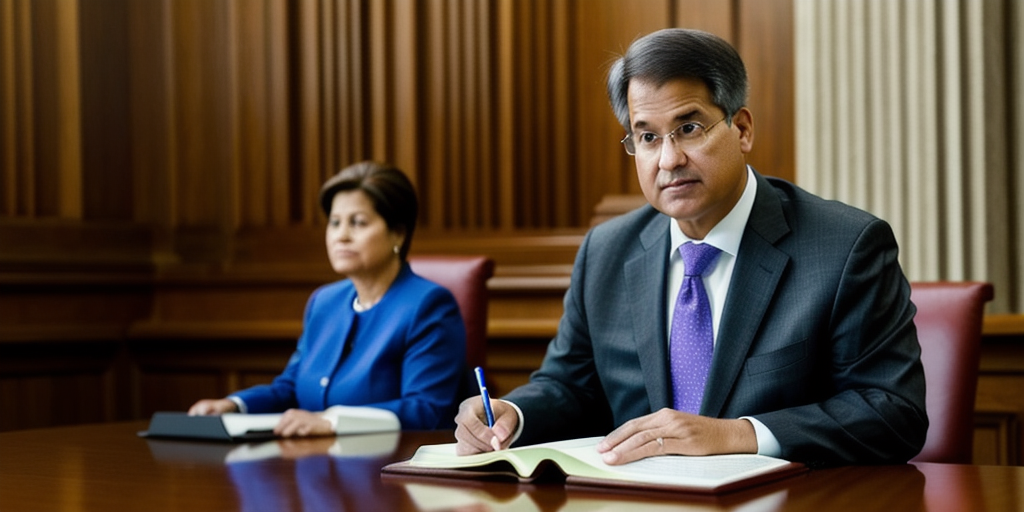
SC: Courts can set timelines for speaker in disqualification cases
How did your country report this? Share your view in the comments.
Diverging Reports Breakdown
SC: Courts can set timelines for speaker in disqualification cases
The Supreme Court on Thursday ruled that constitutional courts can fix a timeline for speakers to decide disqualification petitions. A bench comprising Chief Justice of India (CJI) Bhushan R. Gavai and justice A.G. Masih ruled that while courts cannot injunct speakers from deciding such petitions, they can certainly issue directions to facilitate decisions within a reasonable time. The top court set aside a November 2024 decision of a division bench of the Telangana high court and ordered the state’s speaker to decide within three months the pending disqualification pleas against three Bharat Rashtra Samithi (BRS) legislators who defected to the ruling Congress party last year—Tellam Venkat Rao, Kadiyam Srihari, and Danam Nagender. The Supreme Court had earlier pulled up theTelangana speaker for a seven-month delay.
A bench comprising Chief Justice of India (CJI) Bhushan R. Gavai and justice A.G. Masih ruled that while courts cannot injunct speakers from deciding such petitions, they can certainly issue directions to facilitate decisions within a reasonable time—especially when speakers fail to act altogether.
The top court set aside a November 2024 decision of a division bench of the Telangana high court and ordered the state’s speaker to decide within three months the pending disqualification pleas against three Bharat Rashtra Samithi (BRS) legislators who defected to the ruling Congress party last year—Tellam Venkat Rao, Kadiyam Srihari, and Danam Nagender.
The Supreme Court had earlier pulled up the Telangana speaker for a seven-month delay in even issuing notices on the disqualification pleas, observing in April that it could not remain a “mute spectator” to the “naked dance of democracy” where speakers ensured petitions “die a natural death.”
Reading out the operative portion of the judgment on Thursday, CJI Gavai said, “We have referred to the 52nd Constitutional Amendment which introduced the Tenth Schedule, recognising political defections as a matter of national concern that undermines the very fabric of democracy… The purpose of entrusting the Speaker with the power to decide disqualification petitions was to ensure an expeditious decision, avoiding dilly-dallying before courts or election authorities.”
However, the court noted that the rationale behind the 1992 judgment in Kihoto Hollohan vs. Zachillhu, which had refused to impose a time limit on the speaker’s decision, was no longer adequate in a context where speakers deliberately sit on petitions for prolonged periods to avoid adjudication altogether.
“The authors of the Kihoto judgment could not have anticipated a time when high constitutional authorities would indefinitely delay decisions on disqualification pleas, leaving the petitions die their natural death,” the court said.
While emphasising that the speaker acts as a tribunal under the Tenth Schedule and is hence amenable to judicial review, the bench clarified that courts cannot pass injunctive orders restraining the Speaker from making decisions, but facilitating directions are not prohibited.
“The office of the speaker as a tribunal is amenable to the jurisdiction of the Supreme Court under Article 32 and the high courts under Articles 226 and 227 of the Constitution,” the bench observed.
Striking a note of constitutional introspection, the court also left it to parliament to reconsider whether the continued vesting of adjudicatory powers under the Tenth Schedule in the Speaker truly serves the legislative intent behind the anti-defection law.
“It is for parliament to consider whether entrusting the decision-making to the speaker is still serving the objective of combating political defections,” CJI Gavai said.
Importantly, the court warned that not issuing timely directions to the speaker would “frustrate the very purpose of the Tenth Schedule,” likening it to a case of “operation successful, patient dead.”
It noted that the Telangana speaker did not act on the disqualification petitions for seven months, and that notices were issued only after the Supreme Court admitted the matter for a hearing.
Accordingly, it directed the Telangana speaker to take a decision on the disqualification pleas within three months, cautioning that no legislator should be allowed to protract the proceedings.
“The speaker shall decide the disqualification petitions as expeditiously as possible and in any case within three months. No member will be allowed to prolong the proceedings. If any legislator causes delays, the Speaker shall draw adverse inferences,” the court ordered.
